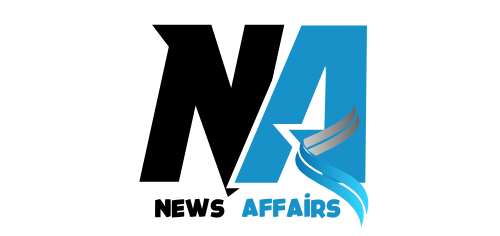NEWS AFFAIRS 7 : WHERE EVERY STORY HAS IT'S AFFAIR!
Last updated on July 26th, 2024 at 03:19 am

Europe Shifts Military Support for Ukraine
In recent developments, some Europe nations have started easing their self-imposed restrictions on military aid to Ukraine. This change comes as the United States remains cautious and Russia continues to issue warnings about potential global conflicts, including threats to use nuclear weapons.
Ukrainian Forces Make Gains and Face New Threats
On the ground, Ukrainian forces have managed to halt the Russian advance in the northern Kharkiv region, reclaiming territory northeast of Lyptsi and maintaining control of Chasiv Yar, a key town on the eastern front. According to Ukraine’s Military Media Center, they inflicted heavy losses on Russian forces, killing or wounding 8,650 soldiers in one week, and destroying numerous tanks and armoured vehicles. President Volodymyr Zelenskyy claimed Russian losses in Kharkiv were eight times those of Ukraine. However, he also warned of new Russian forces building up in Belgorod, northwest of Kharkiv.
French President Macron Supports Strikes Inside Russia
French President Emmanuel Macron has voiced support for Ukraine using French weapons to strike military sites inside Russia, a significant shift in policy. Macron emphasized that Ukraine needs to be able to neutralize the military sites from which it is being attacked. He clarified that civilian facilities should not be targeted. This statement came after a Russian missile attack on a shopping center in Kharkiv killed 16 people and injured 45.
NATO Allies Rethink Restrictions
NATO allies are beginning to reconsider restrictions on the use of provided weapons. The NATO Parliamentary Assembly voted to expand and speed up weapon deliveries to Ukraine, calling on allies to support Ukraine’s right to defend itself by lifting some of these restrictions. NATO chief Jens Stoltenberg urged allies to consider allowing Ukraine to use these weapons against legitimate military targets in Russia, especially with the fighting close to the Russian border.
Varied Responses from NATO Members
Macron is not the first NATO leader to change his stance. The UK’s Foreign Secretary, David Cameron, had already lifted similar restrictions. Since May 2023, the UK and France have supplied Ukraine with long-range missiles, and the US has joined in by providing ATACMS missiles. Despite this, the US Pentagon remains cautious, stating their position hasn’t changed significantly. However, there are internal debates within the US government about this policy.
Germany and Other NATO Members Follow Suit
Germany’s Chancellor Olaf Scholz also supported Ukraine’s right to strike military sites within Russia, aligning with Macron’s position. However, Germany has not yet agreed to provide Taurus missiles, which Ukraine has requested. Russian President Vladimir Putin warned of “serious consequences” if European weapons are used inside Russia, with Dmitry Medvedev, a senior Russian official, suggesting this could lead to a world war.
France Plans Military Training in Ukraine
France is also planning to send troops to train Ukrainian units inside Ukraine, breaking another NATO taboo. Ukrainian Commander-in-Chief Oleksandr Syrskii announced that French instructors would soon visit Ukrainian training facilities.
Poland and New Military Agreements
Poland is considering shooting down incoming Russian missiles from its airspace, responding to a Ukrainian request. Meanwhile, Ukraine signed new military agreements with Spain, Belgium, and Portugal, with significant financial aid and promises of fighter jets.
Hungary’s Opposition
Not all NATO members agree with the expanded military aid. Hungary’s Prime Minister Viktor Orban expressed concerns about NATO becoming involved in the conflict and opposed Brussels’ initiatives for NATO participation. Hungary, maintaining strong ties with Russia, has prohibited military aid from transiting its territory to Ukraine.
Conclusion
As Ukraine continues to defend itself against Russian aggression, European nations are increasingly willing to provide military support, despite the risks and warnings from Russia. This evolving situation highlights the complex dynamics within NATO and the broader international community as they navigate the balance between supporting Ukraine and avoiding a broader conflict.
Read More :









